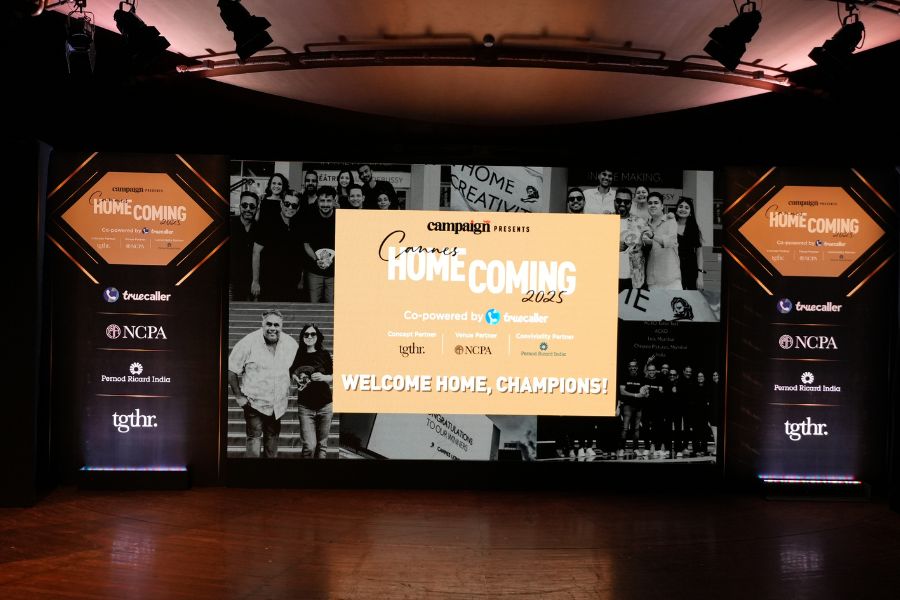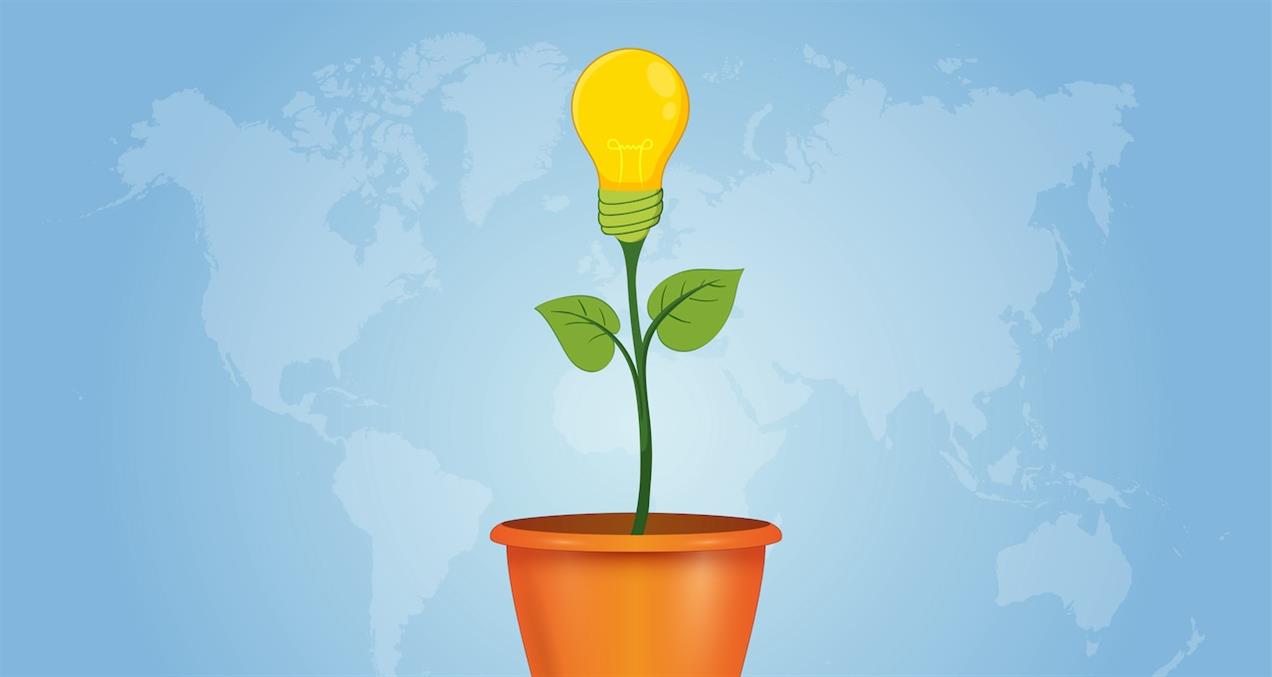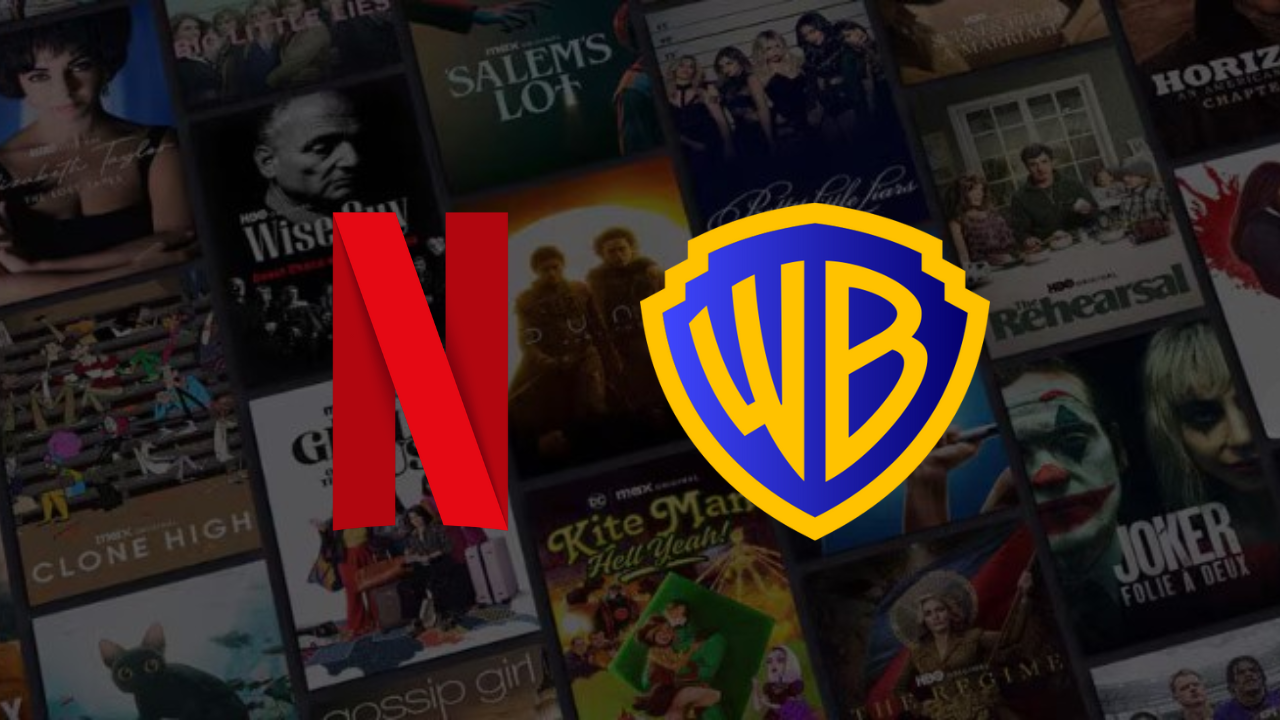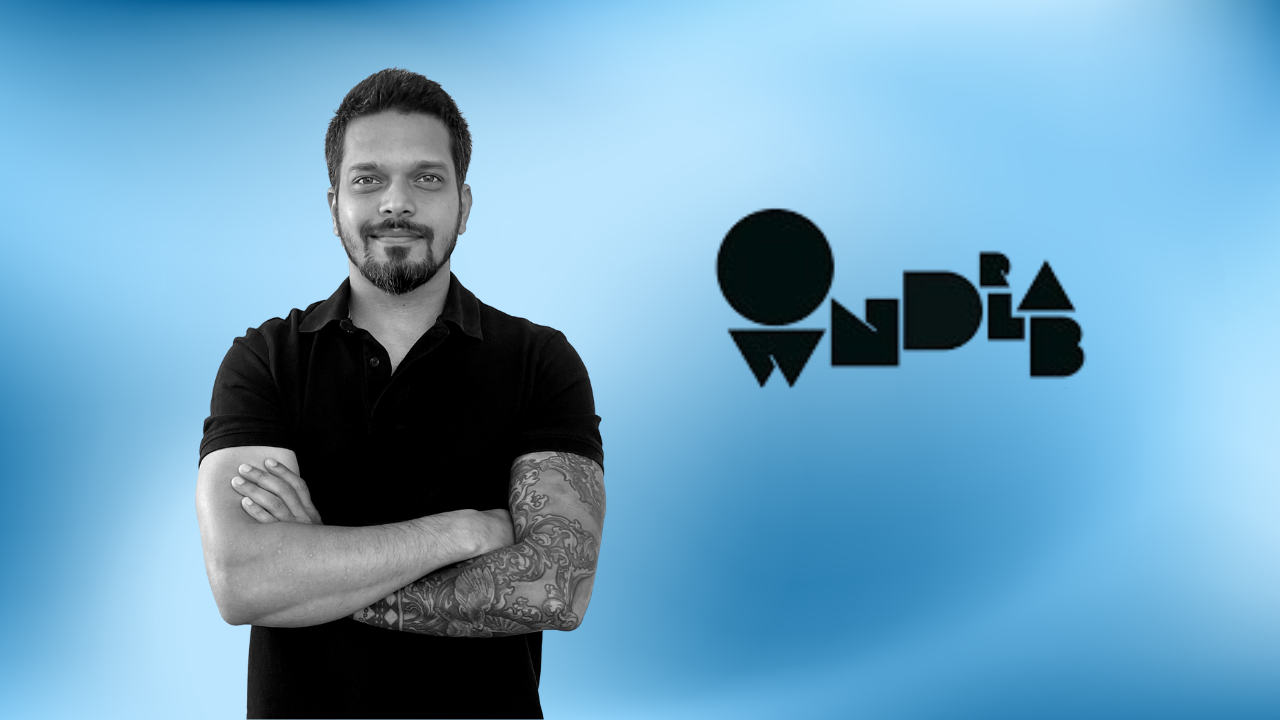Some of the biggest names in the Indian advertising fraternity gathered at the inaugural edition of Cannes Homecoming— a first-of-its-kind initiative to honour the Indian contingent that won big at Cannes Lions International Festival of Creativity 2025.
Think of it as an event hosted by the industry for the betterment of the industry. It served not only as a recognition of this year’s Cannes Lions winners from India, but as a rallying call to deepen the country’s creative ambition on the global stage.
Cannes Homecoming, organised by Campaign India, was co-powered by Truecaller, with Mercedes as the Luxury Partner, Pernod Ricard as the Conviviality Partner, NCPA as the Venue Partner and tgthr. as the Concept Partner.
The event opened with an address by Ashish Bhushan, country head of Campaign India, who congratulated the winners and acknowledged their brilliance. “While we've made our mark, we still have to claim our rightful stake at the global table of creativity,” he said, urging the industry to dream big, collaborate intensely, and dial up their commitment.
Three panels, endless insights
The programme featured engaging discussions across three panels, exploring topics from global creativity and the transformative role of technology to strategies for enhancing India's performance at Cannes in the coming years.
The first panel, ‘How is Global Creativity Shaping Up?’, unpacked ways of approaching the craft moderated by Josy Paul, chairperson and chief creative officer, BBDO India. The other panellists included former Cannes jurors like Piyush Pandey, chief advisor of Ogilvy India, Rajdeepak Das, CEO and chief creative officer of Leo Burnett South Asia, and chairman for the creative council of Publicis Groupe, South Asia; Agnello Dias, co-founder of Spinach Experience Design, and Partha Sinha, senior advisor for consumer practice at McKinsey & Co.

The panel underscored humility and continuous learning as hallmarks of an accomplished creative while underscoring the importance of creativity that serves, not just sells. Paul averred that one should not play a game with an eye on the scoreboard, going on to explain that the focus should be on making good ads, not an ad for the awards.
Pandey stressed that the point of creativity is not to win a Cannes. “There’s a lot we need to unlearn from Cannes this year. Don’t get so mesmerised by Cannes that you forget to keep greed and obsession in check,” he said.
Dias explained that there is a difference between an advertisement and advertising. “We are not making creative ads; we are making creative products. I've always seen that if you can start a debate among the jury as to where the piece of work falls, then it is a great piece of work,” he stated.
Das emphasised that an idea's true value is unlocked through meaningful consumer interaction. “The idea of success is no longer limited to initial impact; they require building dynamic ecosystems where consumers actively engage with, use, and champion the product,” he noted.
Sinha summed up that creativity starts right at the problem-solving stage, “So, it's not just about how the piece of film looks or how the radio script sounds. It is about how they approach the problem.”
Tech, talent, and the future of creativity
The second panel, ‘Role of Technology in Elevating Creativity’, explored technology as the new creative calculus with Vinita Bhatia, editor of Campaign India, moderating the discussion. The panel had Niraj Ruparel, WPP’s creative tech lead joining Jayesh Pandey, managing director of Global Network Accenture Song, Vanita Rathore, senior director—global ad sales at Truecaller and Vishal Sagar, director—brand and creative strategy at PocketFM.
The session shone light on how agencies and brands can leverage technology to build more effective, purpose-driven, and trustworthy ecosystems. They argued for a balance between human intuition and AI precision.
Rathore affirmed that creativity is deeply backed by technology, “We’re all beginning to realise that technology is no longer a support function, it’s become a core part of how we live, think, and create.”
She explained that there is a catch: AI and technology can generate hundreds of messages, but the real challenge is giving those messages the right meaning. “And that’s where humans come in,” she said.

Ruparel revealed that the world is entering an era that holds the potential to unleash unprecedented power. The power to transform creativity, scale impact, and solve problems in ways we’ve never imagined.
“But what truly excites me is how human creativity is still central, now empowered, not replaced, by technology. How do we build AI that works not just for the privileged few, but for ‘many Indias’?” he said.
India at Cannes: Where do we go from here?
The final session, ‘Decoding India's Performance at Cannes Lions 2025’, was an unfiltered look at India’s overall performance at Cannes this year. The panellists included Enormous’ managing partner, Ashish Khazanchi along with Talented’s founding partner Binaifer Dulani and Anuraag Khandelwal, CCO of 82.5 Communications with Aalap Desai as the moderator. Desai is the Chief Creative Officer and Co-Founder at tgthr., the youngest Indian agency to win at Cannes.
The panel interrogated India’s 2025 Cannes performance as some highlighted the 32 Lions as a “great year,” whereas others expressed that the country can, and must, aim higher. Some of the themes in the discussion included embracing Indian cultural narratives and avoiding the obsession with awards.

Dulani noted that the talk about trends is mostly in hindsight. “It’s like we experience all this great work, and then we sit back and try to reverse-engineer what the trend was. But I don’t think creativity starts that way. It rarely begins with a clear ‘trend’ in mind,” she opined. Talented is among the independent agencies that won at Cannes this year.
A movement in the making
Cannes Homecoming put 32 Cannes-winning campaigns across categories in the foreground. From celebrating campaigns including BBDO’s ‘Share the Load’, VML’s ‘The Girl Who Played Tutari’ to Ogilvy’s ‘Box to Beds’ and Tea Flute’ and Havas’ ‘Ink of Democracy’, the room witnessed the work of with India’s creativity.
It has been years since Indian creatives made a mark at Cannes, but they generally return home to muted applause with no single platform to celebrate and learn from their wins. The industry lacked a unifying moment to spotlight that success, share insights, and inspire the next wave despite India's growing presence at the Croisette. Cannes Homecoming filled that void, and it is slated to return annually, offering a space for the Indian ad community to reflect consistently.




